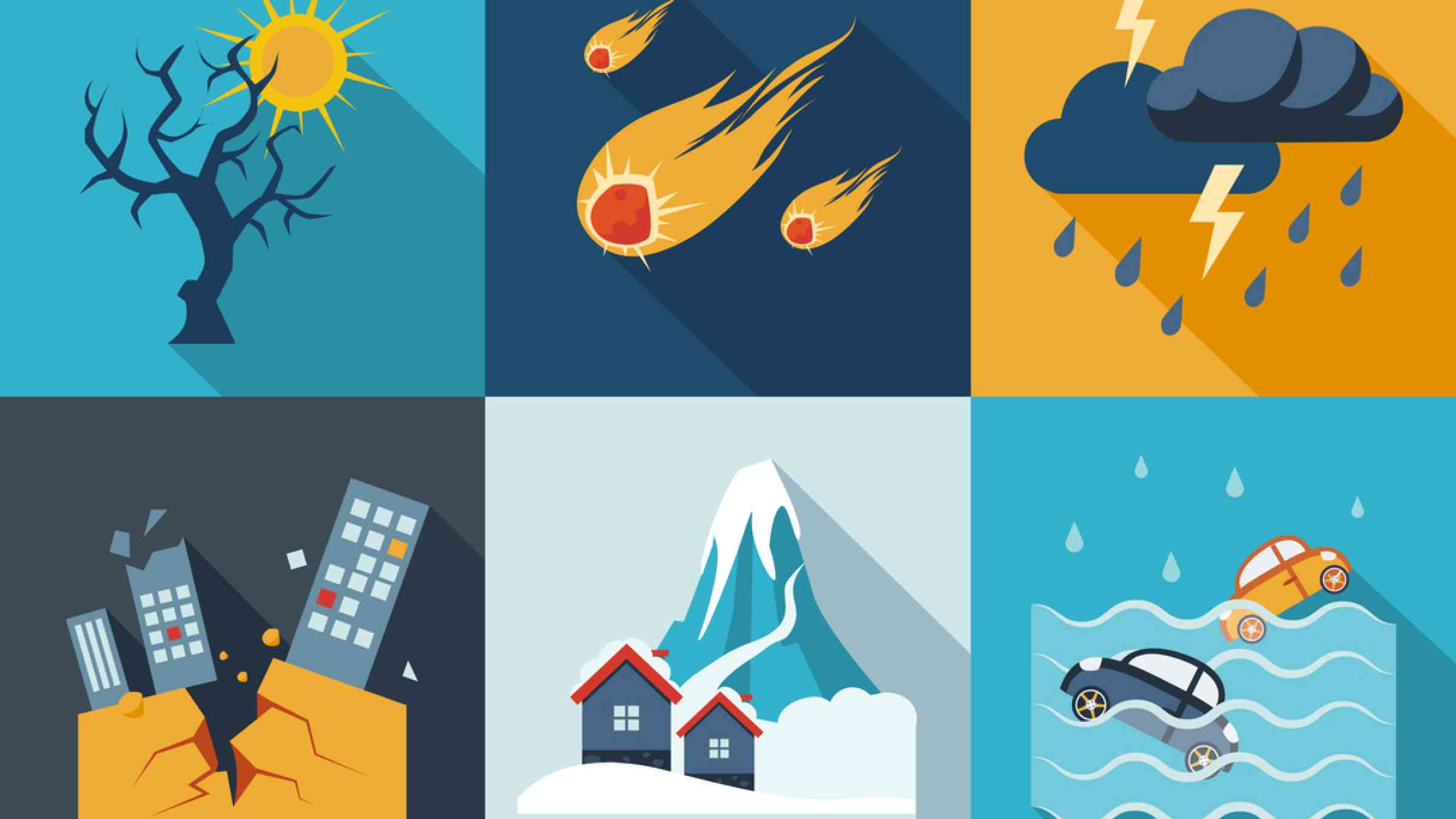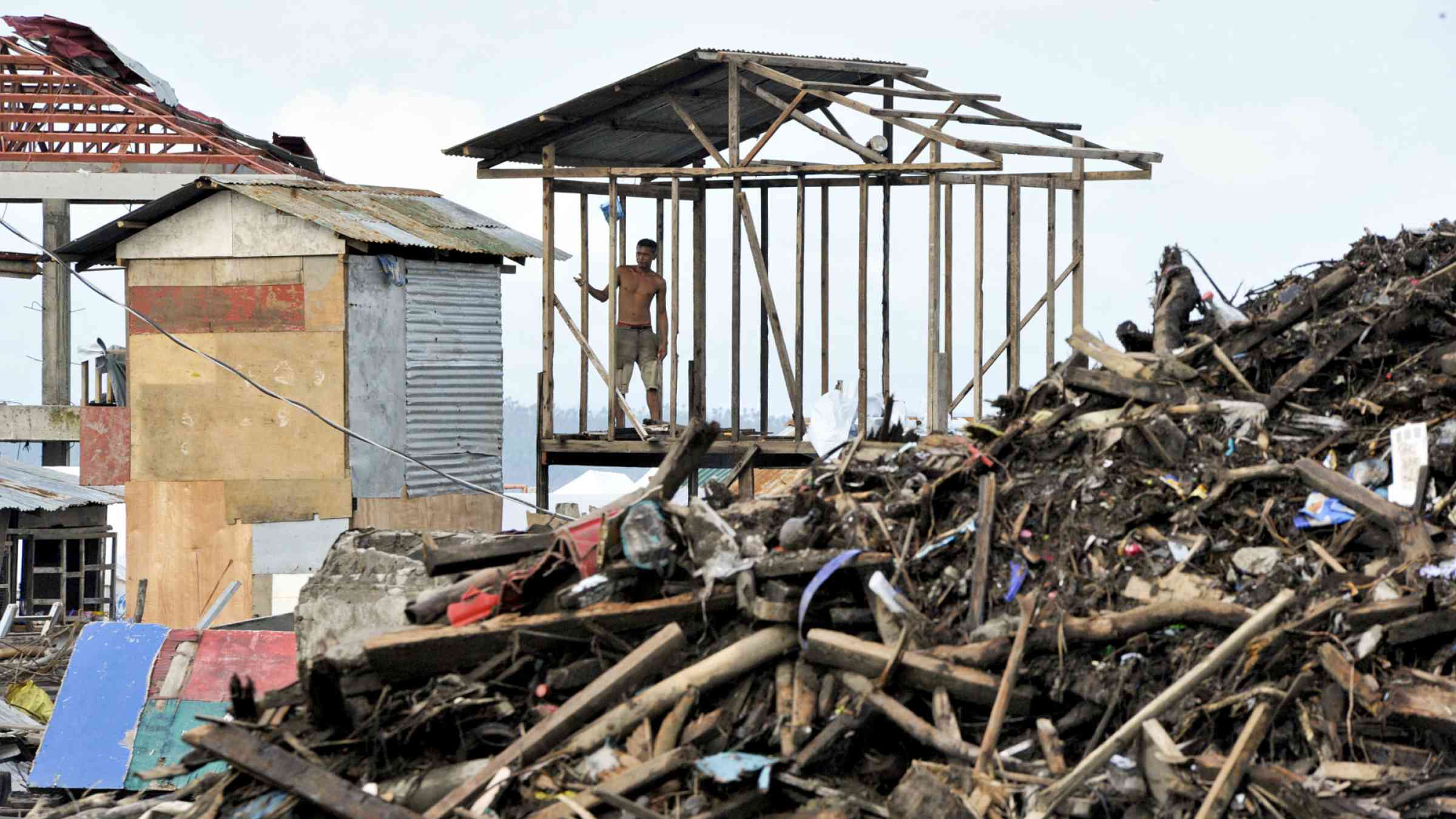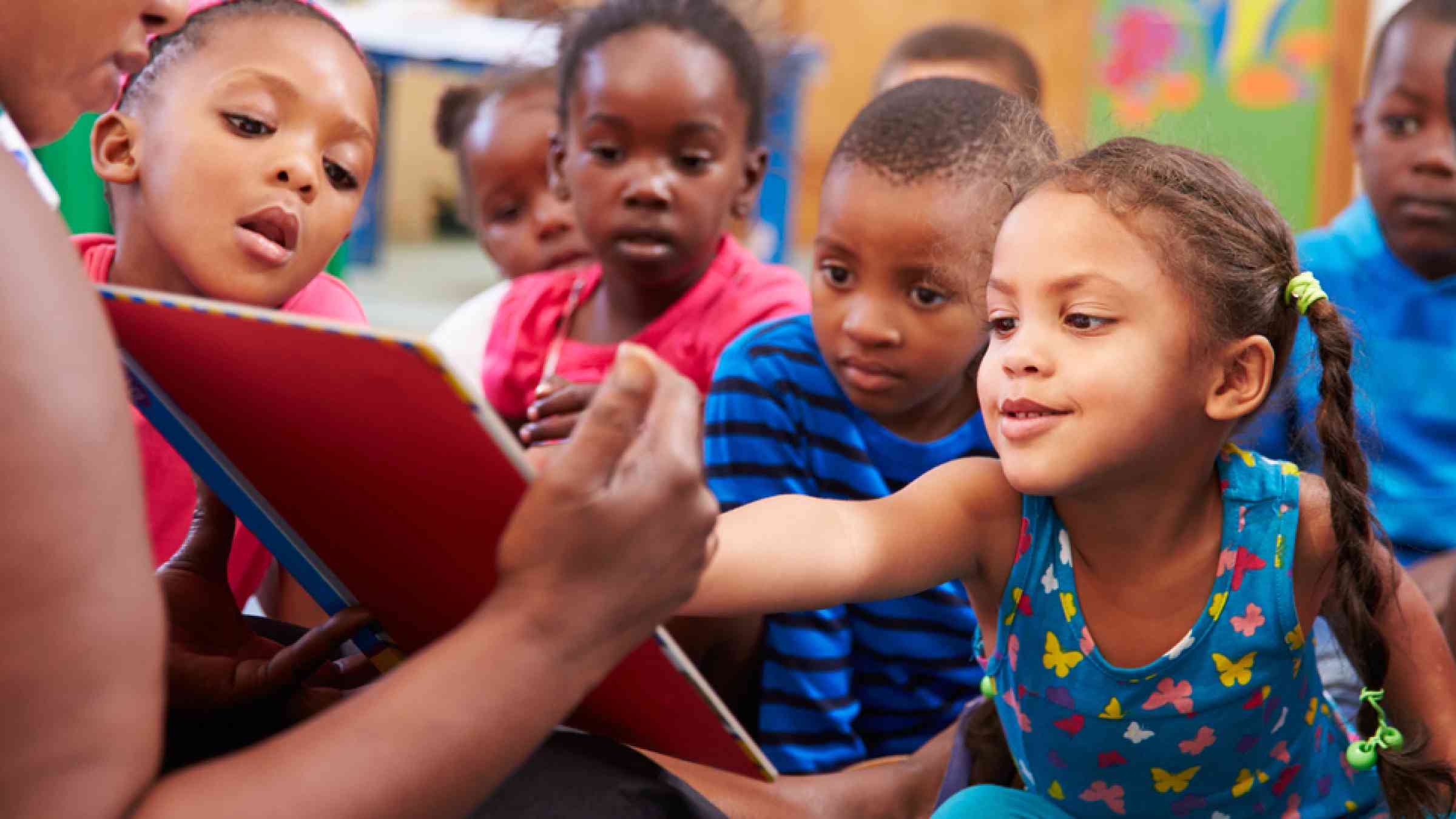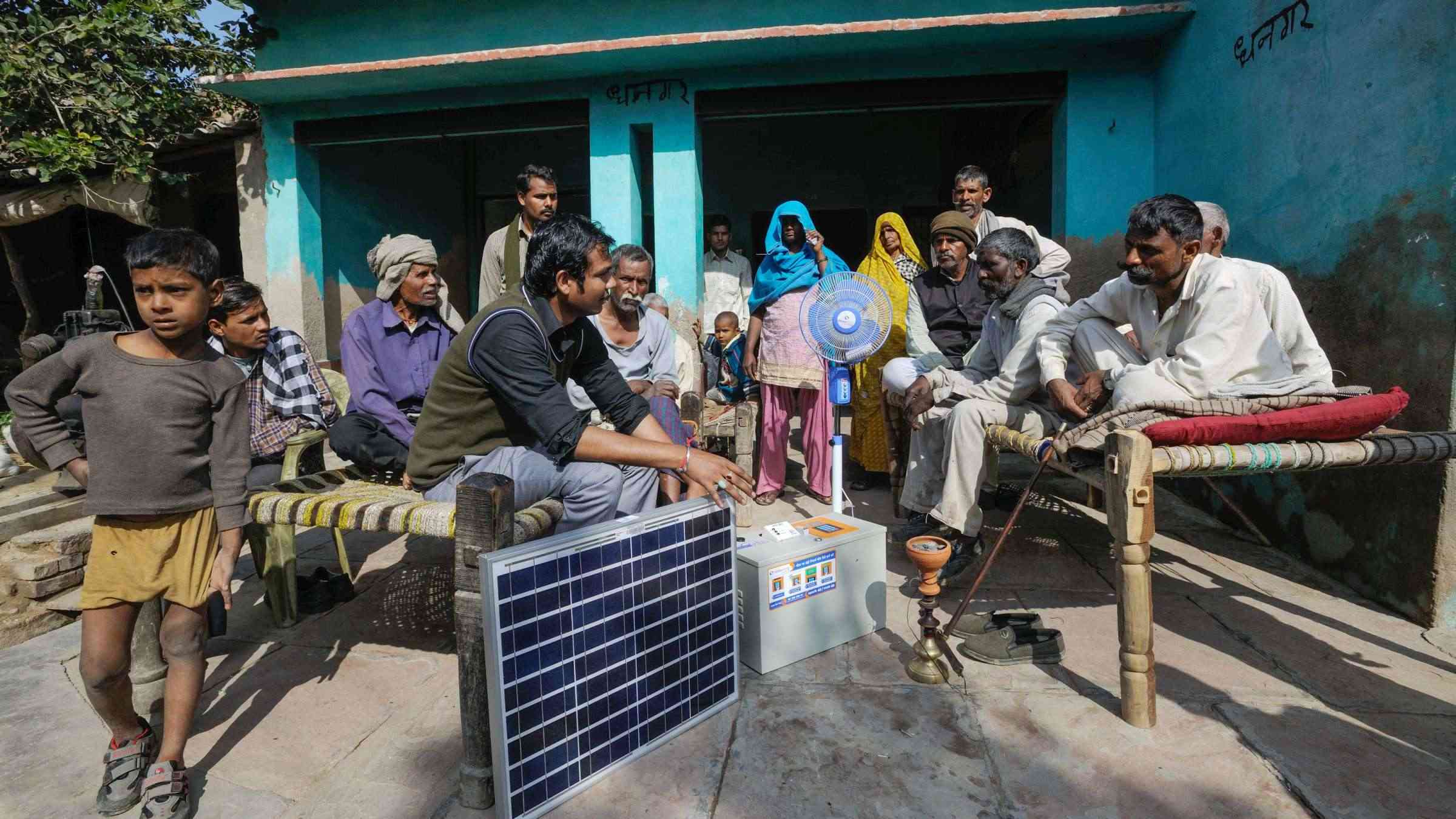Themes in disaster risk reduction
DRR-related themes and issues are wide and cross-cutting.
Most DRR topics cover more than one theme or issue, and some themes have a high degree of correlation with others. In each section, you can learn more about common DRR themes and see the latest developments.
Natural environment
- Climate change
Adaptation benefits, costs, measures, capacity; climate resilience, climate-proofing, climate risk management, climate change as a disaster risk driver. - Environment and ecosystems
Deforestation, ecosystems and environmental management, environmental degradation, environmental impact assessment, INRM and land-use. - Food security and agriculture
Agricultural micro loans and finance, agricultural risk management, climate smart agriculture, crop distribution, diversified cropping system, food storage capacity, rural land-use planning. - Water
Sustainable water resource management, including: drinking water, freshwater, irrigation, preventive protection of drinking water supplies, sanitation, transboundary water management.
Human development and inclusion
- Capacity development
Capability utilization, capacity assessment, capacity development response, individual, community and institutional learning, development planning, training and development, institutional strengthening and development, functional capacities, technical capacities. - Children and youth
Child-centred disaster risk reduction, child protection, orphans, information and participation of children and youth, impact of disasters on children and youth. - Civil society/NGOs
Civic action, collective community action, community-based organization (CBO) action, grassroots action, integrative DRR, NGOs and PVOs. - Community-based DRR
Community vulnerability assessment, community disaster response preparedness, community risk mitigation, local capacity assessment, local risk mapping. - Cultural heritage
Heritage conservation, traditional methods, knowledge, know-how, housing; ancient communities coping practices and systems, community resilience mechanisms. - Gender
Gender mainstreaming, gendered vulnerability, gender-sensitive disaster risk management. - Human mobility
Participation and protection of migrants, refugees, internally displaced people; migration induced by disasters, climate migration, planned relocation. - Inclusion
Participation, inclusiveness, empowerment, at-risk populations, including: children, orphans, women, disabled, elderly, homeless, LGBTs, migrants, etc. - Social impacts and resilience
Coping capacity, cultural impacts, loss absorption, loss acceptance, loss of livelihood, psychological impacts, psychological support, social vulnerability.
Science knowledge and advocacy
- Advocacy and media
Advocacy and public awareness raising, disaster risk reporting, public information on disaster risk reduction, risk communication, social media. - Traditional and Indigenous knowledges
Indigenous early warning system, local implementation, knowledge, skills, technical knowledge; traditional knowledge, transferable indigenous knowledge. - Science and technology
Science-informed initiatives, technology and innovation output, informing policy-making and practice, co-designing, co-producing and co-delivering new knowledge.
State governance and economy
- Economics of DRR
Disaster damage and loss assessment, funding, financial effects, poverty, socio-economic impacts, cost-benefit analysis, forecast-based financing. - Fragility and conflict
Humanitarian crisis, conflict, post-conflict, peacebuilding, violence. - Governance
Accountability, empowerment, coordination, policy and legislative framework; regional, national, and local platforms; cross-border collaboration. - Insurance and risk transfer
Disaster insurance, re-insurance, catastrophe bonds, contingency funding and credit, micro-insurance, loans, reserve funds, risk financing, risk insurance. - Private sector
Business partnerships for DRR, civil action and public-private partnership, corporate social responsibility, government and private sector partnership.
Infrastructure and critical services
- Critical infrastructure
Communications systems and networks, health facilities, emergency evacuation shelters, elements of transportation systems, waste disposal, water supplies. - Education and school safety
Disaster prevention education and curricula, education continuity, safe schools, school disaster management. - Health & health facilities
Capacity of health practitioners, health facilities and services, preparedness, gender, mental health, psychosocial support, safe hospitals, trauma prevention. - Structural safety
Building codes, building standards, building materials, construction, retrofitting. - Urban risk and planning
Resilient cities, urban planning, urban management.
Understanding and managing risk
- Disaster risk management
Mitigation, preparedness, prevention, risk reduction plan, policies and strategies; preparedness and contingency planning, prospective disaster risk management. - Early warning
Alert and warning dissemination; end-to-end warning system; monitoring, analysis and forecasting; people-centred early warning system, policies and strategies. - GIS and mapping
Geographic information systems, hazard exposure mapping, vulnerability mapping, risk mapping. - Information management & technology
Data and information exchange standards, databases and information management, portals, knowledge management, networks and communities of practice, ICT. - Risk identification and assessment
Hazard assessment, risk assessment; risk modelling; risk analysis process; vulnerability assessment. - Small Island Developing States
Small island and developing states (SIDS), Small Islands, coastal resilience. - Space & aerial technology
Satellite imagery, earth observation, remote sensing, geospatial technology, UAV, drones, optical and radar imagery, meteorological satellites. - Systemic risk
Cascading effects, compound risks, disruption of systems, interconnections, risk governance, feedback loops, interdependencies, tipping points.
Recovery
Recovery
Build back better, humanitarian planning for long-term risk reduction, early recovery, shelter, reconstruction, psycho-social issues for rehabilitation.
Related resources


Disaster risk reduction (DRR) work "concerns everyone, from villagers to heads of state, from bankers and lawyers to farmers and foresters, from meteorologists to media chiefs."
Living with risk: A Global Review of Disaster Reduction initiatives
Go further with PreventionWeb



